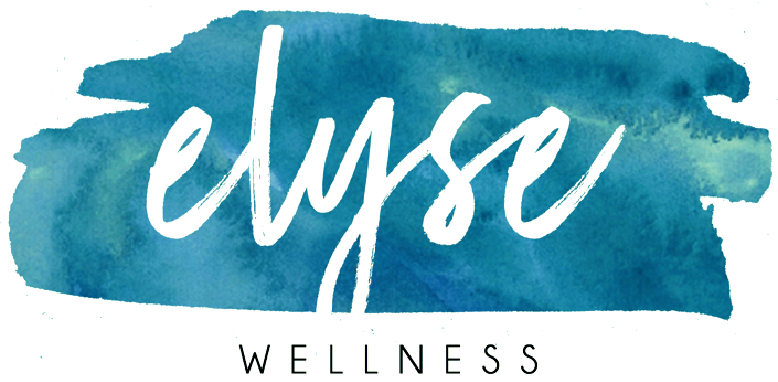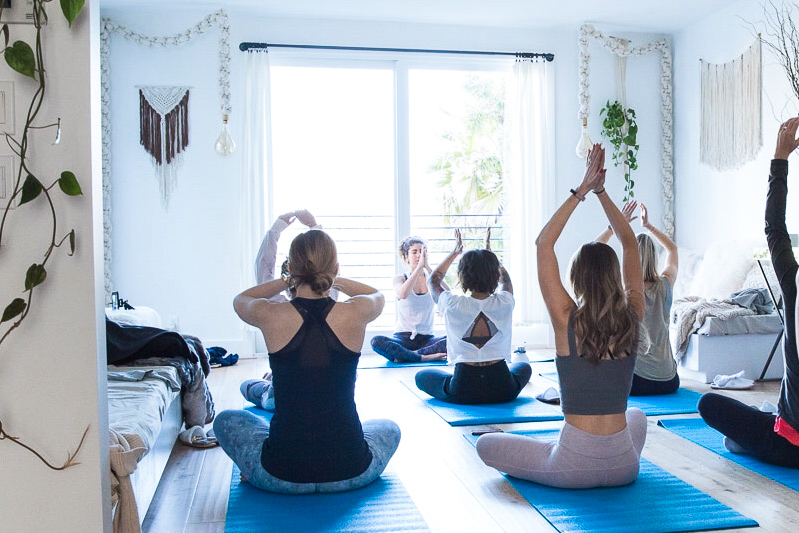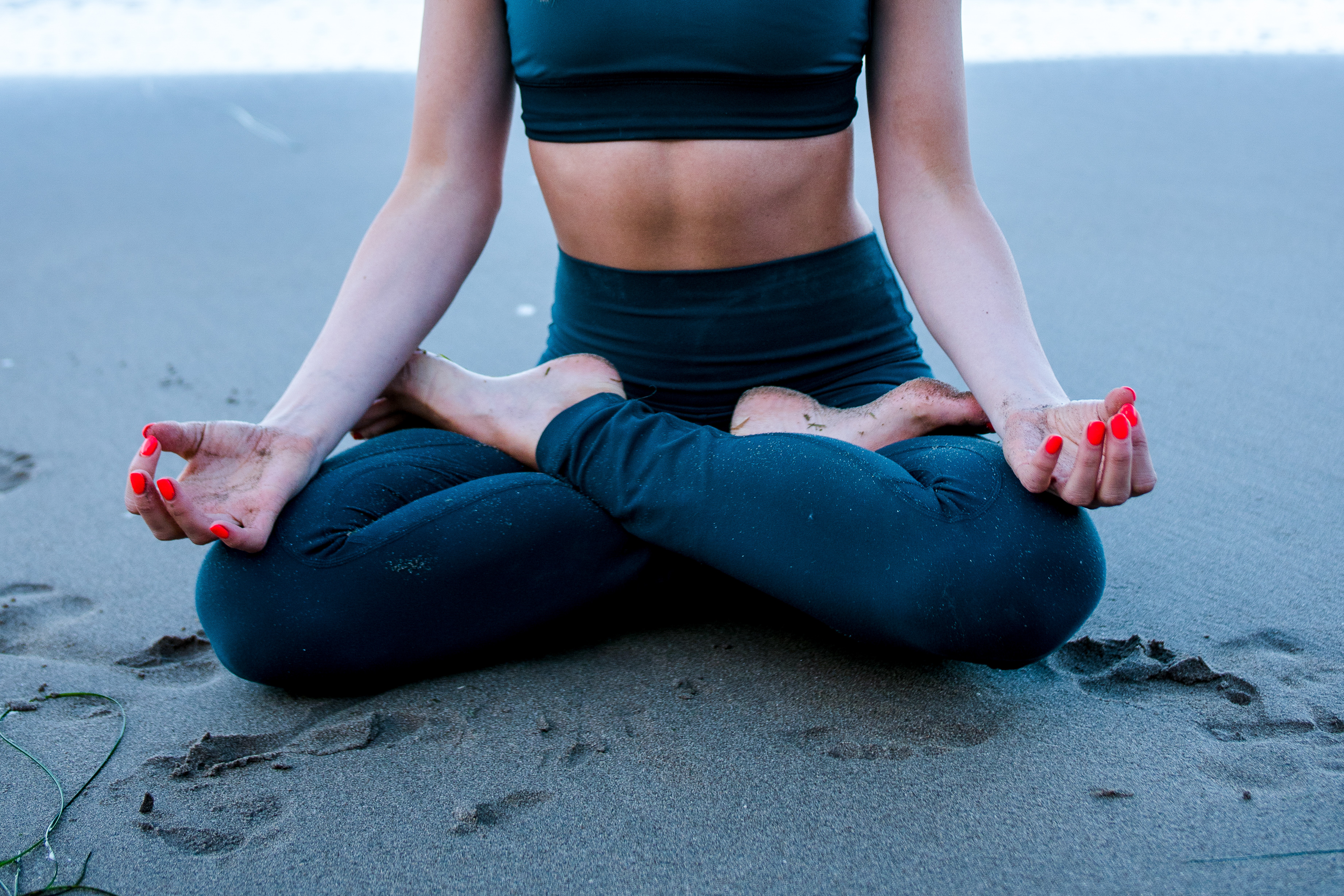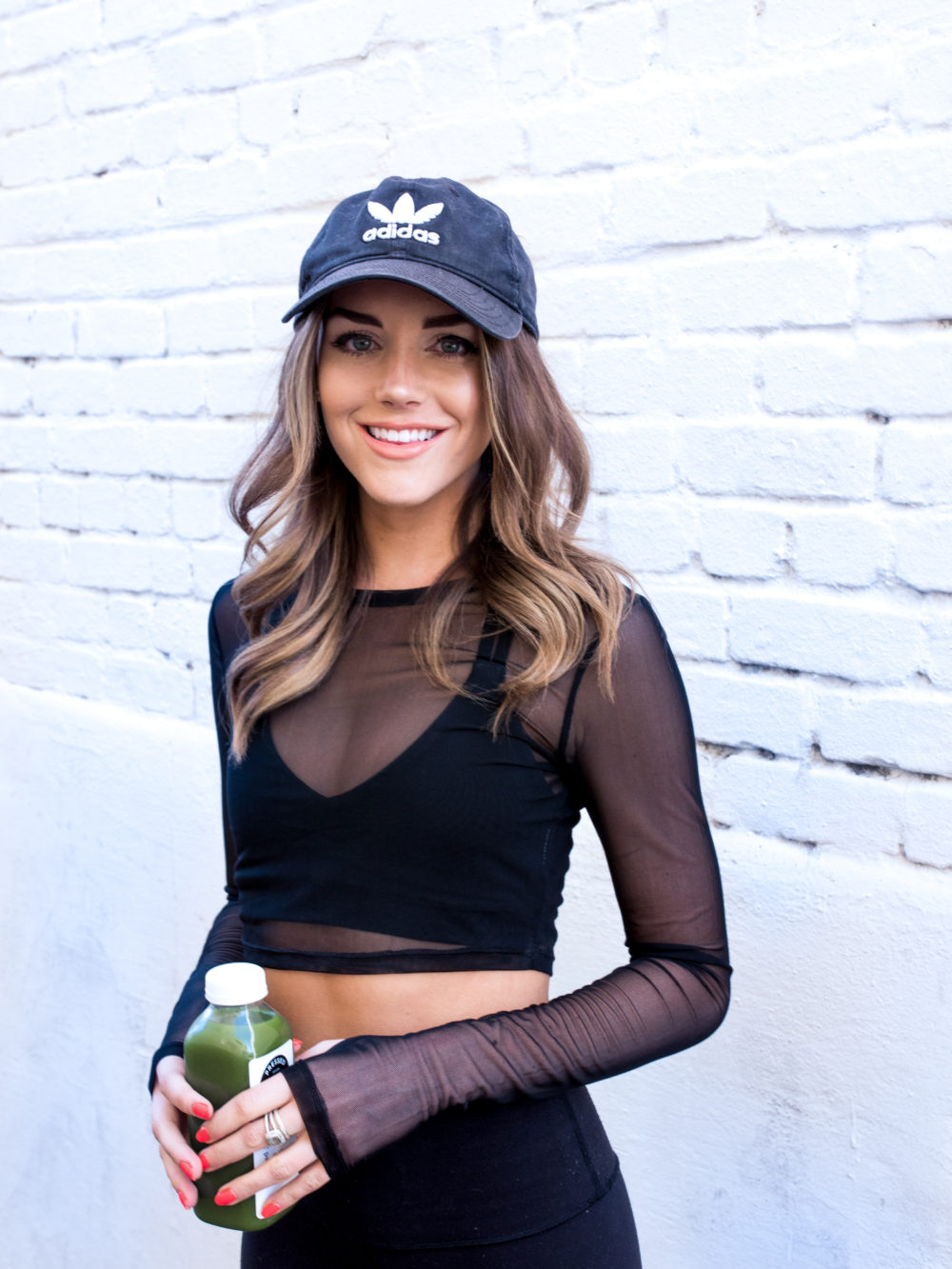
Once upon a time, our circadian rhythms took care of themselves. We woke up with the sunrise, we went to bed with the sunset, we ate our food during the day, not late at night.
Enter, modern life. We are exposed to artificial light constantly (electronics, screens, fluorescent & LED lights) that allows us to live our lives with little regard for the timing of the sunrise and sunset, and we have food available to us constantly. This makes waking up to a glowing cellphone screen, staring at a computer all day, and late night snacking while scrolling instagram or watching netflix all too common. And unfortunately, all this nonstop light exposure and eating has major effects on our circadian rhythms.
Your circadian rhythm is basically your internal clock – a 24 hour cycle that sets the tone for your sleep and waking time. The SCN is a part of the hypothalamus in your brain that governs your biological clock, and this process is majorly affected by light (especially blue light). For example when it’s dark, your hypothalamus sends the message to release melatonin to make you sleepy.
So what disrupts circadian rhythms?
1. Light (especially blue light)
Studies have shown that exposure to blue-light before bed (for example using an e-reader) can suppress melatonin levels (making it harder to fall asleep) and even shift your biological clock. But remember, not all blue light is bad (natural sunlight is our main source of blue light). In the right context, blue light can be great for you – the blue light in sunlight helps wake you up in the morning and regulate your circadian rhythm. The problem is getting blue light exposure when we shouldn’t be (at night) from electronics and artificial light.
2. When You Eat
Hate to burst your bubble guys, but a calorie is not just a calorie (hopefully if you follow this blog that’s come across by now) – and this goes for when you eat that calorie too. Just as light affects your circadian rhythm, so does eating. The overnight fast is a natural process that keeps your internal clock on track, and eating at all hours of the day / night throws this off. Studies have found that even without changing the number of calories consumed, only restricting the window in which they were consumed each day, metabolic diseases were prevented in animal models.
Okay, so why should I care?
1. Circadian disruption can affect weight gain
Studies where patients have reduced sleep have shown an INCREASE in ghrelin (the hormone that makes you hungry and tells your body to eat) and a DECREASE in leptin (the hormone that tells your body you’re full). AKA not enough sleep means you will be fighting an uphill battle with your hormones (and they always win) who are telling you to eat more than you probably need.
2. Circadian disruption can hinder cellular repair processes
The natural period of sleep and fasting in our circadian rhythm is our bodies time to turn on all those great cellular clean up and repair processes like autophagy, which are key for longevity. Melatonin (which is suppressed by blue light exposure in the evening) is also protective against oxidative DNA damage.
3. Circadian disruption can disrupt the gut microbiome
It seems like there’s nothing that doesn’t connect back to the gut these days. Studies have found disrupted gut microbiomes and gut dysbiosis in jet legged people and mice with circadian disruption.
Alight – how do I fix it?
1. Eat your meals with the sun
This is the simplest way to put it, and you really can’t go wrong if you follow this pattern of eating. Avoid eating too early in the morning and too late and night. If you’re ready to up-level and like more structure, check out my post on intermittent fasting. IF has been shown to have major benefits for supporting a healthy circadian rhythm
2. Block that light at night – especially the blue light
Ideally we’d all spend our evenings winding down by candlelight, but come on, life happens – late night work is a thing, and netflix is wonderful. Blue Light Blocking Glasses
- Cute blue light blocking glasses – I love DIFF Eyewear’s blue light blocking glasses because they block 30% of blue light while still being CUTE (this matters people) *You can use code ELYSEWELLLNESS for $20 off any of DIFF’s blue light blocking glasses
- Intense blue light blocking glasses – if you wanna go real biohacker (and you don’t care about throwing off your #netflixandchill vibes) TrueDark makes Dave Asprey approved blue light blocking glasses (again, you won’t look hot, but they’ll definitely do the job)
Electronics Protection
- iPhone Night Shift Mode – If you have an iPhone USE NIGHT SHIFT. Probably the best feature they’ve released in a while – it let’s you set a timer for when your phone shifts into emitting red/orange light and less blue light. I have mine set to kick on at 4pm and off at 7am
- f.lux for desktops – Basically the same idea has night shift, but for your computer. This free plug in automatically updates your screen colors so it gets less-blue later and later into the day. I’ve been using it for years and find it so uncomfortable to look at a screen at night without now
Black out curtains – We should all be sleeping in total darkness. Ditch the night-lights (hopefully you have anyway because you’re an adult?) and get some good blackout curtains – mine were super affordable from amazon 
Photo by Light Livin Photography
How do you take care of your circadian rhythm?





